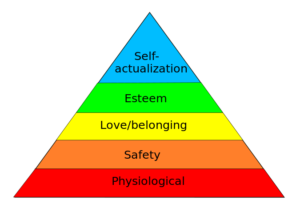
The last of the Silent Generation are leaving us. The oldest Baby Boomers, born in 1945 and so 71-72 years old, are now the bulk of the elderly. Pretty soon, those of us of Generation X will be the voice of reason wedged between the insanely selfish Baby Boomers and the insanely pathetic Millennials.
There are many repeating patterns in Nature that skip one or two generations. The mindlessly narcissistic hubris of the generation that led the world into the hemoclysm of World Wars I and II is re-expressing itself in the consumer-rapist greed of the Boomers.
The grim cynicism of the generations that stopped Hitler is another pattern that has skipped some generations. The Boomers don’t get it: their world is very serious. The God-given mission to squeeze every last cent of material productivity out of the Earth is one that brooks no levity.
Neither do the Millennials get it: their world is also very serious. In the hyper-connected cyberworld of the Millennial, to take your finger off the pulse for one moment is to risk becoming fatally unfashionable.
Their great taboo is to never ask who is pulling the strings of all these fashions and fads and to what ends. The Millennial merely follows, a perfectly feminine creation for an excessively feminine age.
We in Generation X – often raised by our grandparents in the Silent and Greatest Generations while our parents were building careers – do get it. Make no mistake: for us, in between two opposing and mutually annihilating generations that are both deeply detached from reality, survival for our generation will involve getting out of the way while the nutbars fight each other.
As the 21st century takes a more definite form, four distinct groups of enemies have arisen to challenge those who wish for a peaceful world. These are Boomer globalists, Boomer nationalists, Millennial globalists and Millennial nationalists.
The Boomer globalists and nationalists are already familiar to us as the representatives of the various political interests. The globalists are the alliance of the capitalists and communists who want to bring the whole world under the yoke of one system.
The nationalists are those resisting this process, who usually bring with them masses of conservative baggage in the form of disrespecting anyone not like them, in particular women, other races and other sexual orientations.
The Millennial globalists and nationalists are their useful idiots on the streets and in cyberspace. Millennial globalists like Antifa and other social justice warriors will attack nationalist interests under the delusion that they are doing “good”, because there’s nothing a brainless dog enjoys more than biting someone and then getting a pat on the head from the master.
Their opposition, the Millennial nationalists, are naturally the foot soldiers of the wealthy, often religious and ethnonationalist interests who oppose the globalist interests. In practice, many of these people (usually men) are involved in the burgeoning alt-right movement.
This is the arrangement of major sociodemographic forces in the West as we drift towards the second quarter of this century.
However, the timeline before us is chaos, about which little can be known. We can say this for certain: the Baby Boomers will cling to power like shit clings to a blanket, and the Millennials will demand power as if they were all royalty and born to it.
Keeping the world on a even keel will involve making sure that the balance of these forces does not come out of alignment and cause the whole shithouse to go up in flames.
Probably the best historical example of the current plight of Generation X is the way in which Britain was, 80 years ago, caught between insane right-wing Nazis and insane left-wing Communists. At that time, the best strategy was to work on consolidating the strength of one’s position, and to wait for a future opportunity to expand while enemy forces exhaust themselves.





